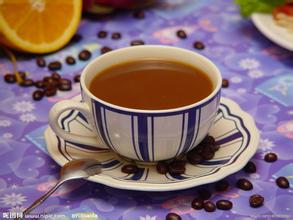An introduction to the spread of traditional Coffee machines in Western Europe and the Origin of Coffee in the World
Let's talk about espresso (Espresso, which means "very fast"). It is a kind of pure black coffee with a layer of golden foam on the surface. It tastes as strong as passionate Latins. Its production requires instant high-pressure extraction, using only the first 25-50 milliliters, also known as "short coffee" (Short Coffee), and it is also drunk at a time, with a little sugar at most. People often have a drink after hard work to refresh themselves-which is why it is called "blue-collar coffee". It is said that the espresso machine was also invented for the purpose of improving the productivity of employees. Just imagine, when coffee is enslaved by work, it has no "taste", only "spirit".
Compared with the above three classic coffees, Western European coffee is much more elegant. It is closer to people's beautiful longing for the leisurely and romantic coffee culture. In particular, Swiss coffee (Cafe Suisse or Cafe Crema), which has the reputation of "aristocratic coffee", is the favorite of the upper class. It is not as insipid as American coffee, not as unacceptable as Turkish coffee, nor too strong as Italian coffee. Gentle and rational Swiss coffee is the perfect combination of elegant taste and wonderful taste. A cup of pure Swiss coffee, using Swiss baked beans as raw materials, extracted in a Swiss automatic coffee machine, with all-natural Swiss fat-rich milk and fine Swiss sugar, and served in a delicate Swiss coffee cup. When you gently stir with a small Swiss coffee spoon, a perfect cup of Swiss coffee is done. Before tasting it, you can smell it as delicate and fragrant as silk, and the golden foam floating on the coffee is "beautiful" and delicious. After a sip, you will feel that the strong aroma of coffee not only stays in your mouth for a long time, but also invades every part of your body. After tasting the Swiss coffee, have a piece of Swiss chocolate and drink a cup of sweet Swiss mineral water. This perfect enjoyment will bathe the whole day in the bright sunshine of the Alps.

Important Notice :
前街咖啡 FrontStreet Coffee has moved to new addredd:
FrontStreet Coffee Address: 315,Donghua East Road,GuangZhou
Tel:020 38364473
- Prev

Introduction of the characteristic varieties of Red bourbon Coffee Yunnan Coffee growing Environment
[country]: El Salvador [manor]: Himalayan manor [producing area]: Santa Ana [altitude]: 1580-1720m [treatment]: half-sun [variety]: red bourbon, Tibica [treatment plant]: El Divisadero [flavor]: plum, brown sugar, red wine acidity generally speaking, Salvadoran coffee inherits the mild quality of Chinese and American coffee
- Next

Introduction of Colombian Ramon Coffee Bean characteristics Manor Flavor description method
Colombia boutique coffee bean flavor description Colombia, located in the northwest of South America, is a beautiful country with a long history. Indians have lived on this land since ancient times. It was colonized by Spain in 1531 and gained independence in 1819. It was renamed in 1886 to commemorate Columbus, the discoverer of the American continent. Columbia, mountains and rivers
Related
- Detailed explanation of Jadeite planting Land in Panamanian Jadeite Manor introduction to the grading system of Jadeite competitive bidding, Red bid, Green bid and Rose Summer
- Story of Coffee planting in Brenka region of Costa Rica Stonehenge Manor anaerobic heavy honey treatment of flavor mouth
- What's on the barrel of Blue Mountain Coffee beans?
- Can American coffee also pull flowers? How to use hot American style to pull out a good-looking pattern?
- Can you make a cold extract with coffee beans? What is the right proportion for cold-extracted coffee formula?
- Indonesian PWN Gold Mandrine Coffee Origin Features Flavor How to Chong? Mandolin coffee is American.
- A brief introduction to the flavor characteristics of Brazilian yellow bourbon coffee beans
- What is the effect of different water quality on the flavor of cold-extracted coffee? What kind of water is best for brewing coffee?
- Why do you think of Rose Summer whenever you mention Panamanian coffee?
- Introduction to the characteristics of authentic blue mountain coffee bean producing areas? What is the CIB Coffee Authority in Jamaica?

